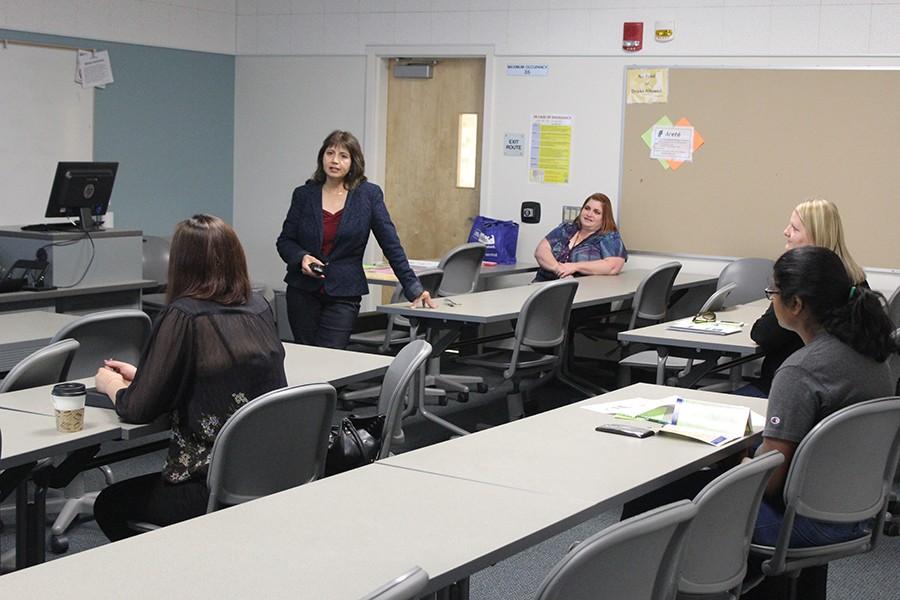The stress and relaxation workshop provided by the re-entry program on campus gave students information on common symptoms and how manage stress and learn to relax.
The workshop was held was held on Wednesday, Feb. 24, led by Maria Cevallos, a psychiatrist social worker, who works for the department of mental health in the Los Angeles County.
Annissa Sagarnaga, a first semester student, was offered extra credit from her psychology 101 class hopes to take useful information from this workshop “I want to manage my stress better and learn how to relax more because I freak out.”
With only 3 students in attendance, it gave Cevallos an opportunity to focus more of the student’s individual lives.
Stressed may be expressed differently in children, adolescents, and adults.
In children they develop new habits like thumb sucking, hair twirling or nose picking. They also have nightmare, overreact to minor problems, and have a drastic change in academic performance.
Adolescents tend to not complete his or her schoolwork, may eat too little or too much, may neglect their appearance, and may become irritable and have emotional outburst.
As for adults, irritability and short temper is common. Memory problem or the inability to concentrate may happen.
Also a sense of loneliness or isolation and a general feeling of unhappiness is a possibility.
Some strategies that can help decrease stress includes working out and getting some physical activity, get organized, prioritize your day, put what’s important first.
Cevallos said, “One of the main things I always use to tell my clients was do physical activity, that’s one of the best ways to alleviate stress quickly. Because when I don’t do that for a week I feel it in my body.”
All of these things are a part of building you resilience. Your support network influences your stress tolerance level.
- Surround yourself with positive people and decrease the time you spend with the negative ones, even if they are family members.
- Find someone you can talk to, it helps the ability to deal with your emotions and can strengthen your relationships.
- Take care of yourself; body, mind, and spirit. Make healthy choices rather than binge eating. This includes alcohol, limit yourself when drinking. Drinking is temporary and doesn’t fix your stress and can later on lead to serious problems.
Cevallos advises that if you have a friend that seems stressed to read up. “There are a lot of books out there on how to relive stress and it would give them a lot of good ideas.”
She recommended a couple of stress reduction techniques that involve deep breathing.
The first one is to take a deep breath from your diaphragm and hold it, when you’re ready to breath out exhale from your mouth.
Another exercise is to raise your shoulder to your ears or as high as you can and then lowering them down slowly.
The last exercise is to squeeze your buttocks for a couple of seconds and then releasing it.
Do all of these exercises a couple of times.
Meditation, yoga and therapy are also good resources to treat stress.
Stress is something very serious and can lead to anxiety, depression or post-traumatic stress disorder. If you need to turn for help you can call the department of mental health. Call 1 (800) 854-7771. It’s an access help line that is open 24/7 and social workers answer the phone to help assist you.
On campus you may visit the Student Health and Wellness Center. They offer meditation classes for free. Call (562) 860-2451 ext.2321 for more information.










